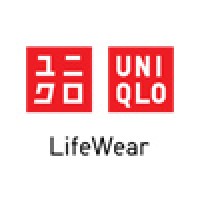
UNIQLO
About UNIQLO LifeWear Apparel that comes from the Japanese values of simplicity, quality, and longevity. Designed to be of the time and for the time, LifeWear is made with such modern elegance that it becomes the building blocks of each individual’s style. A perfect shirt that is always being made more perfect. The simplest design hiding the most thoughtful and modern details. The best in fit and fabric made to be affordable and accessible to all. LifeWear is clothing that is constantly being innovated, bringing more warmth, more lightness, better design, and better comfort to people’s lives. About UNIQLO and Fast Retailing UNIQLO is a brand of Fast Retailing Co., Ltd., a leading Japanese retail holding company with global headquarters in Tokyo, Japan. UNIQLO is the largest of eight brands in the Fast Retailing Group, the others being GU, Theory, PLST, Comptoir des Cotonniers, Princesse tam.tam, J Brand and Helmut Lang. With global sales of approximately 2.77 trillion yen for the 2023 fiscal year ending August 31, 2023 (US $18.92 billion, calculated in yen using the end of August 2023 rate of $1 = 146.2 yen), Fast Retailing is one of the world’s largest apparel retail companies, and UNIQLO is Japan’s leading specialty retailer. UNIQLO continues to open large-scale stores in some of the world's most important cities and locations, as part of its ongoing efforts to solidify its status as a global brand. Today the company has a total of more than 2,400 UNIQLO stores across the world, including Japan, Asia, Europe, and North America. The total number of stores across Fast Retailing's brands is now close to 3,600.






